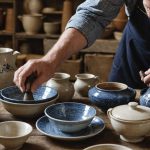British archery offers a captivating journey into history, skill, and camaraderie. Engaging in workshops not only teaches the traditional art of archery but also connects you to centuries of heritage. Whether you’re a beginner or looking to refine your technique, this guide highlights top workshops, key tips, and cultural insights. Step into the realm of arrows and targets, and uncover the joy of mastering this time-honored craft alongside fellow enthusiasts. Ready to unleash your inner archer?
Overview of British Archery Workshops
British archery workshops play a crucial role in preserving traditional archery practices. These workshops provide enthusiasts with a deep dive into the historical context of British archery, exploring its evolution from medieval times to the present day. Participants can gain insights into how archery was not only a vital skill for hunting and warfare but also a popular sport and recreational activity.
In the same genre : Top UK Locations for Immersive Guided Tours Exploring the Rich History of British Maritime Trade
The importance of these workshops lies in their ability to maintain and pass down the rich heritage of archery. They offer hands-on experiences, allowing individuals to engage with the craft in an authentic way. By participating in these workshops, attendees contribute to the continuation of a cultural legacy that might otherwise fade away.
There are various types of British archery workshops available, catering to different interests and skill levels. Some focus on the historical techniques and equipment used in traditional archery, while others may offer modern interpretations and innovations. Whether you are a beginner eager to learn the basics or an experienced archer looking to refine your skills, there is a workshop suited to your needs. These workshops not only enhance one's understanding of archery but also foster a sense of community among participants.
Also to read : Which UK locations offer detailed workshops on traditional cider making processes?
Workshop Locations and Schedules
Finding the right archery workshop locations in the UK can significantly enhance your experience. Popular regions such as Yorkshire, the Lake District, and the Scottish Highlands are known for hosting immersive archery workshops. These areas not only offer scenic backdrops but also provide a rich historical context, making them ideal for learning traditional archery techniques.
Annual UK archery events and festivals are also a great opportunity to engage with the archery community. Events like the National Archery Festival and the Medieval Archery Fair feature workshops that cater to various skill levels. These events often include demonstrations, competitions, and hands-on sessions, offering a comprehensive archery experience.
To find and register for upcoming workshops, enthusiasts can explore online platforms dedicated to archery events. Websites and social media pages of archery clubs often list detailed workshop schedules, including dates, locations, and registration procedures. It's advisable to book in advance, as these workshops tend to fill up quickly due to their popularity. By staying informed and planning ahead, you can ensure a spot in a workshop that aligns with your interests and skill level.
Types of Traditional Archery
Traditional archery styles encompass a variety of techniques and equipment that have evolved over centuries. One of the most iconic is longbow archery, renowned for its historical significance in British culture. The longbow, with its simple yet effective design, was a staple weapon during medieval times, particularly in battles like Agincourt. Its cultural importance is reflected in its continued use in modern archery workshops, where enthusiasts can learn the skills needed to master this formidable weapon.
Another popular style is target archery, which involves shooting at stationary targets from set distances. This style is often practised in controlled environments and competitions, focusing on precision and accuracy. In contrast, field archery takes place in natural settings, requiring archers to shoot at targets placed at varying distances and elevations. This adds an element of unpredictability and challenges archers to adapt their techniques to different terrains.
The cultural significance of these archery styles is profound, as they not only preserve historical practices but also foster a sense of community among practitioners. By engaging with these traditional forms, participants can connect with the past while honing their skills in a supportive and educational environment.
Equipment Needed for Archery Workshops
When attending an archery workshop, ensuring you have the right archery equipment is crucial to fully engage in the experience. For beginners, the essential gear includes a bow, arrows, an armguard, and a finger tab. These items form the foundation of your archery kit, allowing you to practice safely and effectively.
Choosing between traditional and modern gear can significantly impact your workshop experience. Traditional equipment, like the longbow, offers an authentic feel, connecting you to historical practices. In contrast, modern gear often incorporates advanced materials and technologies, enhancing performance and comfort. Both options have their merits, and your choice may depend on personal interest and the workshop's focus.
For those who do not own equipment, many workshops provide options to rent or purchase workshop supplies. Local archery shops or online retailers are excellent resources for acquiring gear tailored to your needs. Renting can be a cost-effective solution for newcomers, while purchasing may appeal to those committed to pursuing archery long-term. Understanding the importance of using suitable equipment will enhance your learning and enjoyment in any archery workshop setting.
Tips for Beginners
Embarking on your archery journey can be both exciting and challenging. Here are some essential archery tips to help you get started. As a beginner, focusing on basic skills such as stance, grip, and aiming is crucial. These foundational elements will set the stage for your long-term success in archery.
One common mistake many beginners make is overlooking the importance of a consistent anchor point. This is the spot on your face where you draw the string back to each time you shoot. Maintaining consistency here is key to improving accuracy. Additionally, avoid gripping the bow too tightly, as this can lead to unnecessary tension and affect your shot.
Instructor guidance is invaluable during workshops. A skilled instructor can provide personalised beginner archery advice, helping you refine your technique and avoid pitfalls. They can also tailor lessons to your individual needs, ensuring you progress at a comfortable pace.
Remember, learning archery is a gradual process. By focusing on these core principles and seeking expert guidance, you'll build a strong foundation and develop the skills needed to excel in this timeless sport.
Understanding the Cultural Significance of Archery
The cultural significance of archery in British history is profound, deeply woven into the fabric of folklore and tradition. Historically, archery was not only a means of survival and defence but also a symbol of community and camaraderie. Tales of legendary archers, such as Robin Hood, highlight archery's role in British folklore, portraying it as a noble and heroic pursuit.
Archery traditions have long served as a community-building activity, bringing people together through shared practice and competition. Villages would often host archery contests, fostering a sense of unity and friendly rivalry. These gatherings were opportunities for social interaction, celebration, and the reinforcement of communal ties.
Workshops dedicated to historical archery practices play a pivotal role in fostering appreciation for this rich heritage. By immersing participants in traditional techniques and narratives, these workshops ensure that the art and history of archery are not lost to time. They provide a platform for individuals to connect with the past, appreciate the skill and craftsmanship involved, and become part of a living tradition that continues to evolve. Through these experiences, the legacy of archery is preserved and celebrated, ensuring its relevance for future generations.
Expert Instructors and Their Insights
Engaging with archery instructors in the UK can transform your learning experience. Notable figures like Simon Needham and Naomi Folkard bring a wealth of knowledge and experience to the table. These professionals have honed their skills over years of practice and competition, offering invaluable expert guidance to both beginners and seasoned archers.
Learning from experienced practitioners is crucial. They provide personalised feedback, helping you avoid common pitfalls and refine your technique. Their insights can significantly enhance your understanding of archery, ensuring you build a strong foundation. Instructors often share unique techniques that are not easily found in textbooks or online resources, making their guidance indispensable.
Professional archers often reveal tips on improving accuracy, such as maintaining a consistent stance and focusing on the mental aspects of archery. They also teach advanced techniques like string walking and gap shooting, which can elevate your skill level. By absorbing these insights, you gain a deeper appreciation for the art and science of archery, equipping you with the tools needed to excel in this timeless sport.
Personal Experiences and Testimonials
Engaging in archery workshop experiences often leaves participants with memorable stories and valuable skills. Many attendees share their personal stories, highlighting the transformative impact these workshops have on their archery journey. For instance, one participant recounted how mastering the longbow during a weekend retreat not only improved their technique but also deepened their appreciation for historical archery.
Participant testimonials frequently mention the supportive environment fostered during these workshops. The sense of camaraderie among attendees is palpable, as individuals from diverse backgrounds come together with a shared passion. This community aspect is a significant draw, offering opportunities for networking and friendship beyond the archery range.
Another common theme in these personal anecdotes is the boost in confidence and skill development. Participants often express how the hands-on instruction and feedback from experienced instructors have elevated their abilities. Whether refining their aim or learning new techniques, the workshops provide a platform for personal growth and achievement in archery. Through these shared experiences, individuals not only enhance their skills but also become part of a vibrant community dedicated to preserving the art of archery.
















